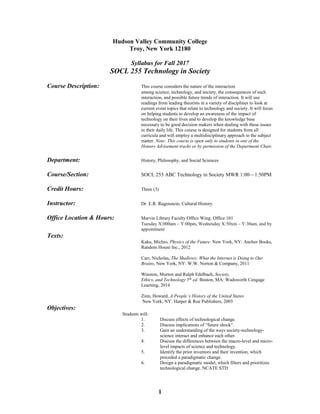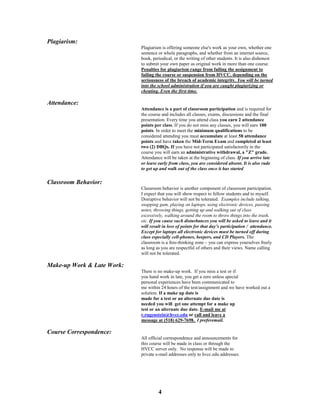This document provides a syllabus for a course on technology and society taught at Hudson Valley Community College in Fall 2017. The course will examine the interaction between science, technology, and society using readings from various disciplines. It will focus on helping students understand the impact of technology in their lives and develop decision-making skills related to technology issues. The syllabus outlines the course objectives, assignments including exams, presentations and essays, grading breakdown, reading list, policies on plagiarism and attendance, and opportunities for extra credit.






